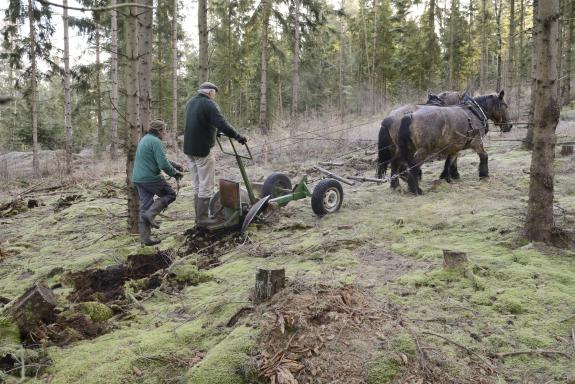Forests perform various functions for society. They are suppliers of a renewable and regionally produced raw material, they store carbon, provide clean drinking water and are the habitat of various organisms. Due to the longevity of trees, measures to promote forest functions are often long-term tasks and the effects of decisions usually only become visible decades later.
In the Hildburghausen municipal forest, silver fir and oak trees, among others, are sown into unstable spruce forests in order to achieve the deepest possible rooting of the soil without disturbance and thus work towards a mixed forest ecosystem with greater climate tolerance and stability. In the IntegSaat project, deadwood is specifically applied to these seeded areas and its effects on the microclimate, soil, seed and vegetation development are investigated.
The article presents the progress and current results of the project, including seed development and the microclimate in 2023. It also presents research results on the effect of different environmental influences on seedling development and the results of a climate chamber experiment on the effects of drought on seedlings of different fir origins from four different European countries.

